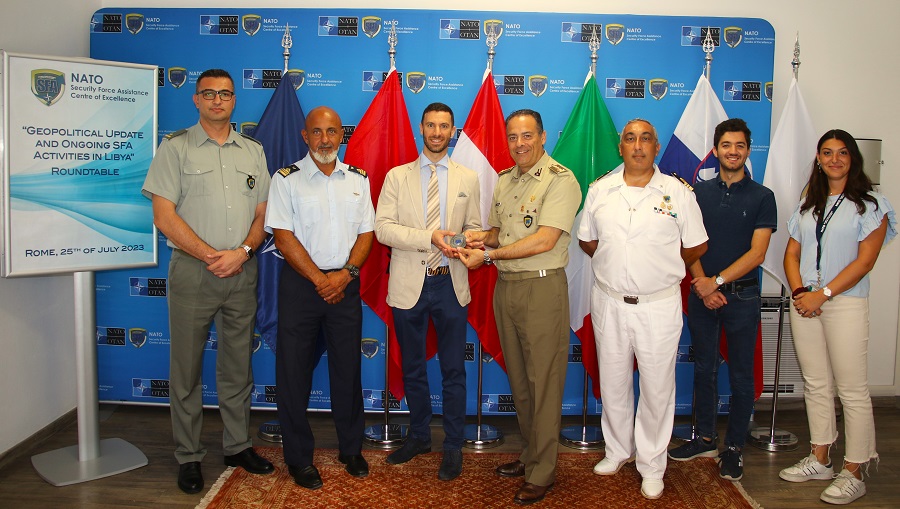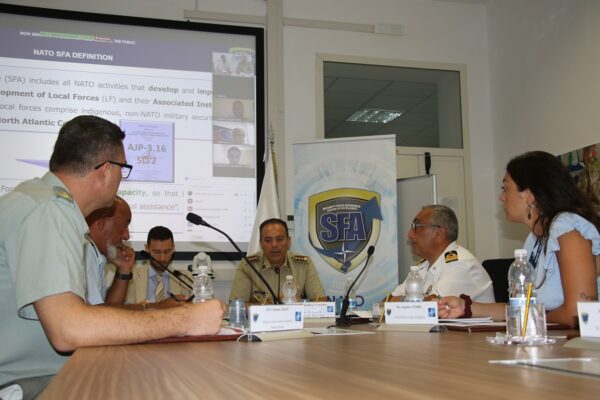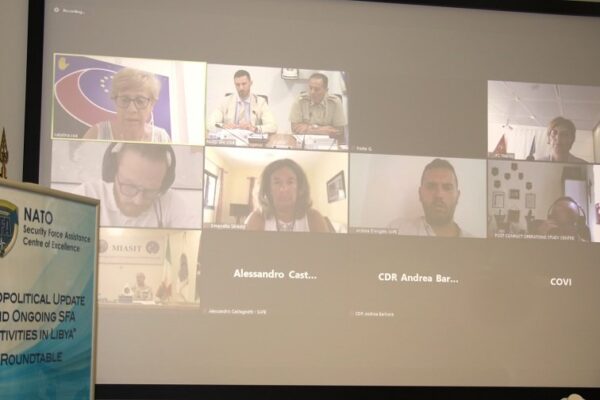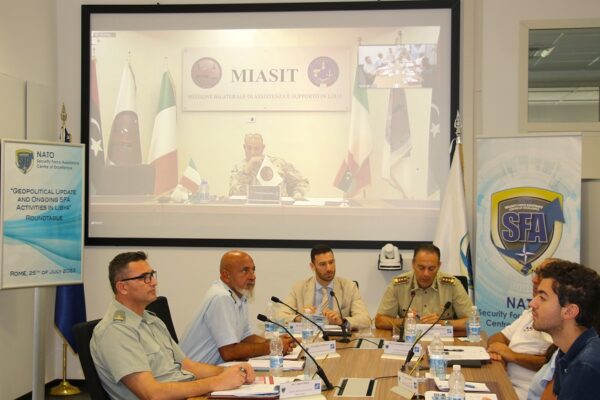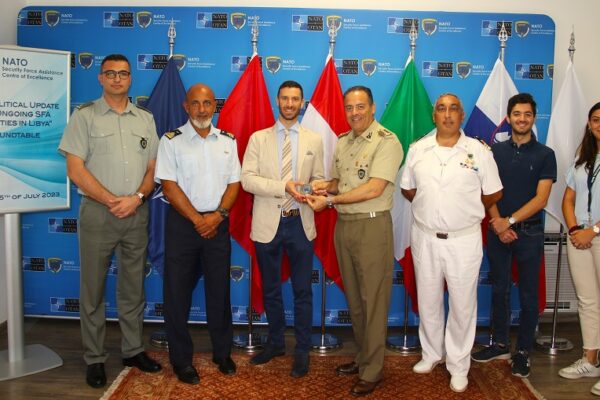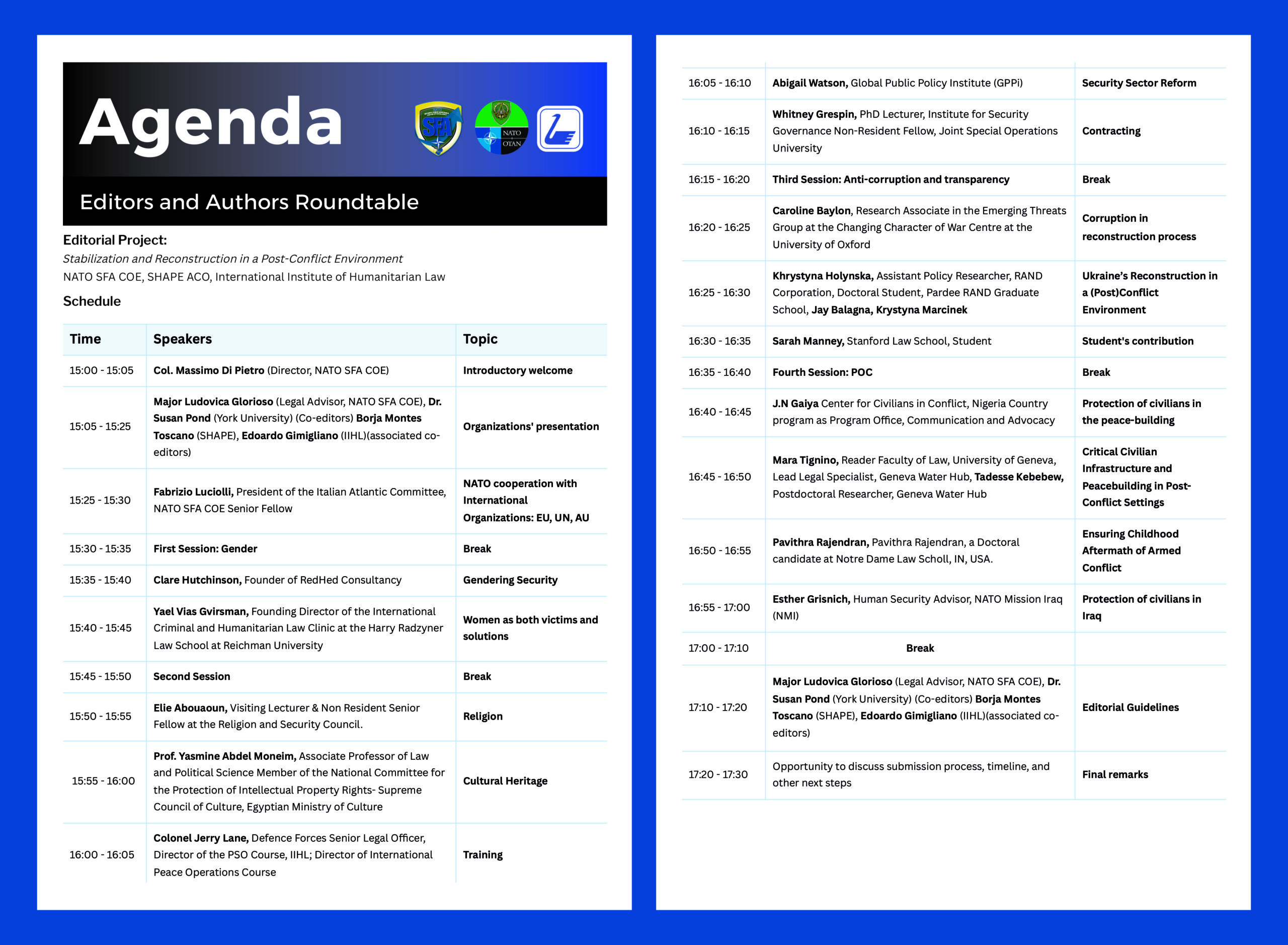On the 25th of July 2023, the NATO Security Force Assistance Centre of Excellence (NATO SFA COE) held a hybrid roundtable on “Geopolitical update and ongoing SFA activities in Libya”.
This event involved various actors belonging to the Italian Joint Force Operational Headquarter (JFHQ), the Center for Higher Defence Studies (CASD), the EU Border Assistance Mission in Libya (EUBAM EEAS), the Italian Bilateral mission of assistance and support in Libya (MIASIT), the Italian Army Post Conflict Operations Study Center (PCOSC) and the Foundation Security and Freedom for Europe (SAFE).
The Roundtable was focused on ensuring the importance of a comprehensive understanding of the local context for all the actors involved in the Libyan operational theatre in order to be able to provide substantial support as well as to share reciprocal knowledge and experiences to develop Capacity Building projects in Libya.
The NATO SFA COE Director, Col Massimo Di Pietro, started the meeting by emphasizing the relevant role of institutional advisors within the NATO SFA framework in improving the effectiveness of capacity building efforts.
Dr. Stefano Marcuzzi, a CASD researcher, provided an overview of the current Libyan geopolitical situation, emphasising both the opportunities of Libya’s reconstruction and the risks posed (including tension in the hydrocarbons sector and the initiatives of Russia). Afterwards, Brigadier General Michele Fraterrigo (COM MIASIT) illustrated the main purposes and means of the MIASIT mission in Libya.
Furthermore, the Head of the EUBAM mission, Dr. Natalina Cea, explained the mandate of the civilian mission and its main functions, highlighting the difficulties as well as the opportunities emerging from a more integrated and regional approach on cross-border issues.
The Head a.i. of the Regional Advisory and Coordination Cell (RACC) of the UE Delegation of Nouakchott, Dr. Simonetta Silvestri, highlighted the necessity of a regional approach to address the challenges of the Libya’s Southern Frontiers, in particular the frontiers with Chad and Niger and the other countries of the Sahel. The Libya- Sahel Coordination-Forum perfectly fits this purpose. The stabilisation in Libya is impacted by the stabilisation in the Sahel and vice versa. The fight against terrorism, transnational organized crimes and any illicit traffic including illegal migration can only be addressed through a coordinated approach to the management of cross border security.
Finally, Dr. Andrea D’Angelo, the President of the SAFE foundation, provided closing remarks on the main activities carried out in Libya within the context of the EULEAD projects.
The roundtable concluded with a fruitful discussion encompassing the various topics and diverse perspectives introduced during the meeting in order to analyse the issues and challenges facing Libya and Sahel in the near future and try to provide useful support in dealing with them.
It offered a unique and prolific occasion to discuss various levels of expertise from different organizations also thanks to all the participants who shared their points of view on the strengths and critical points involved in deploying both civilian and military assistance and support missions in Libya.








